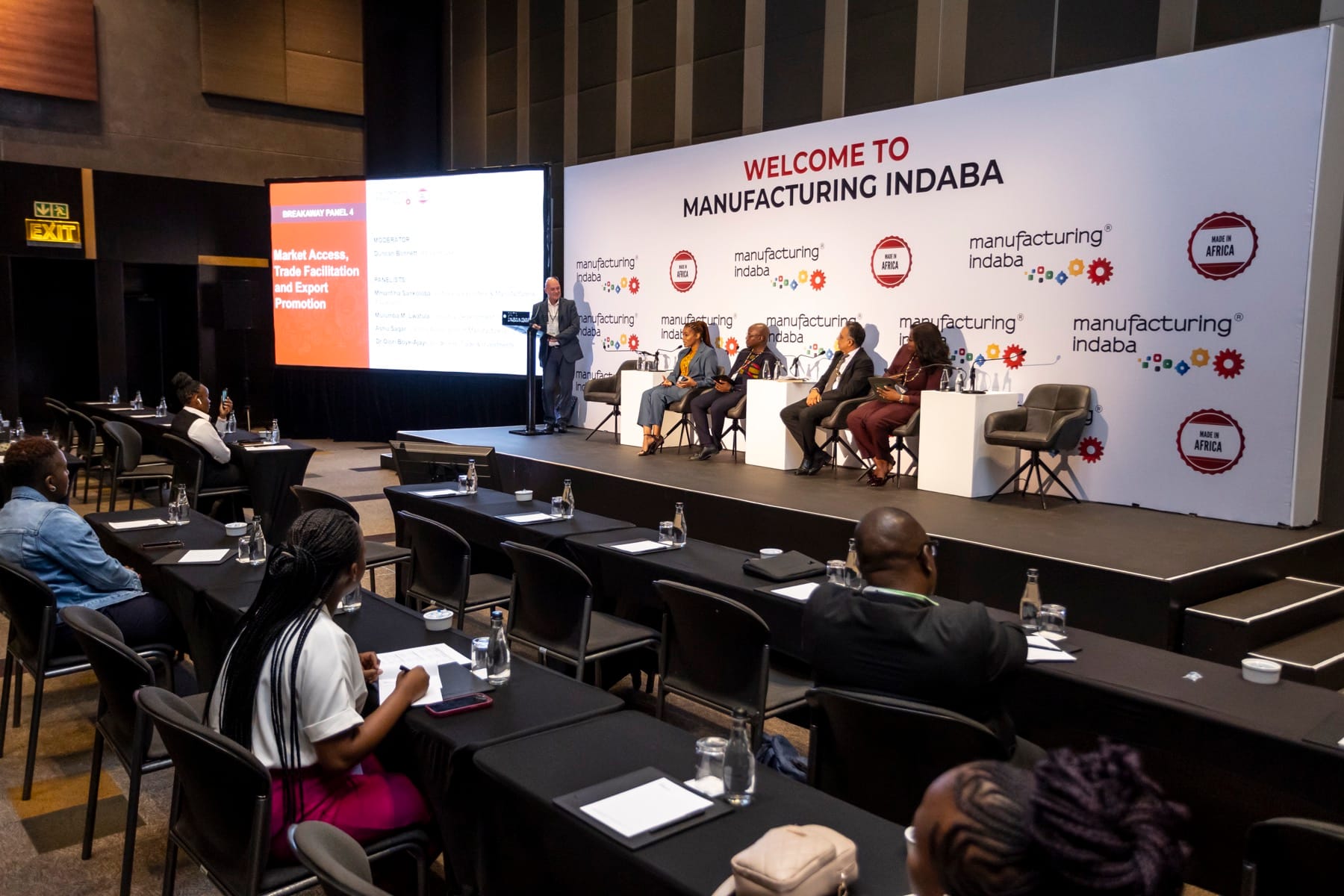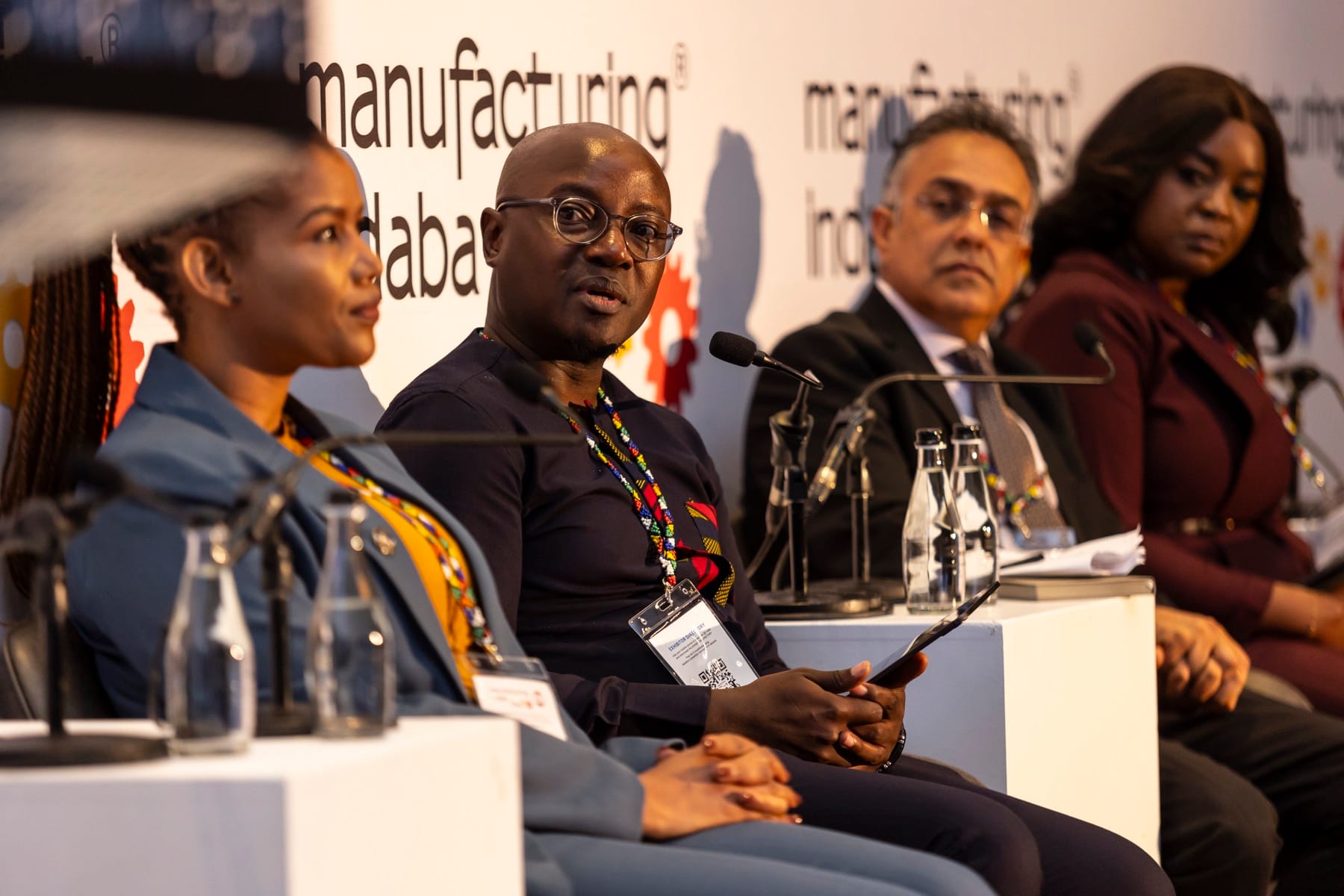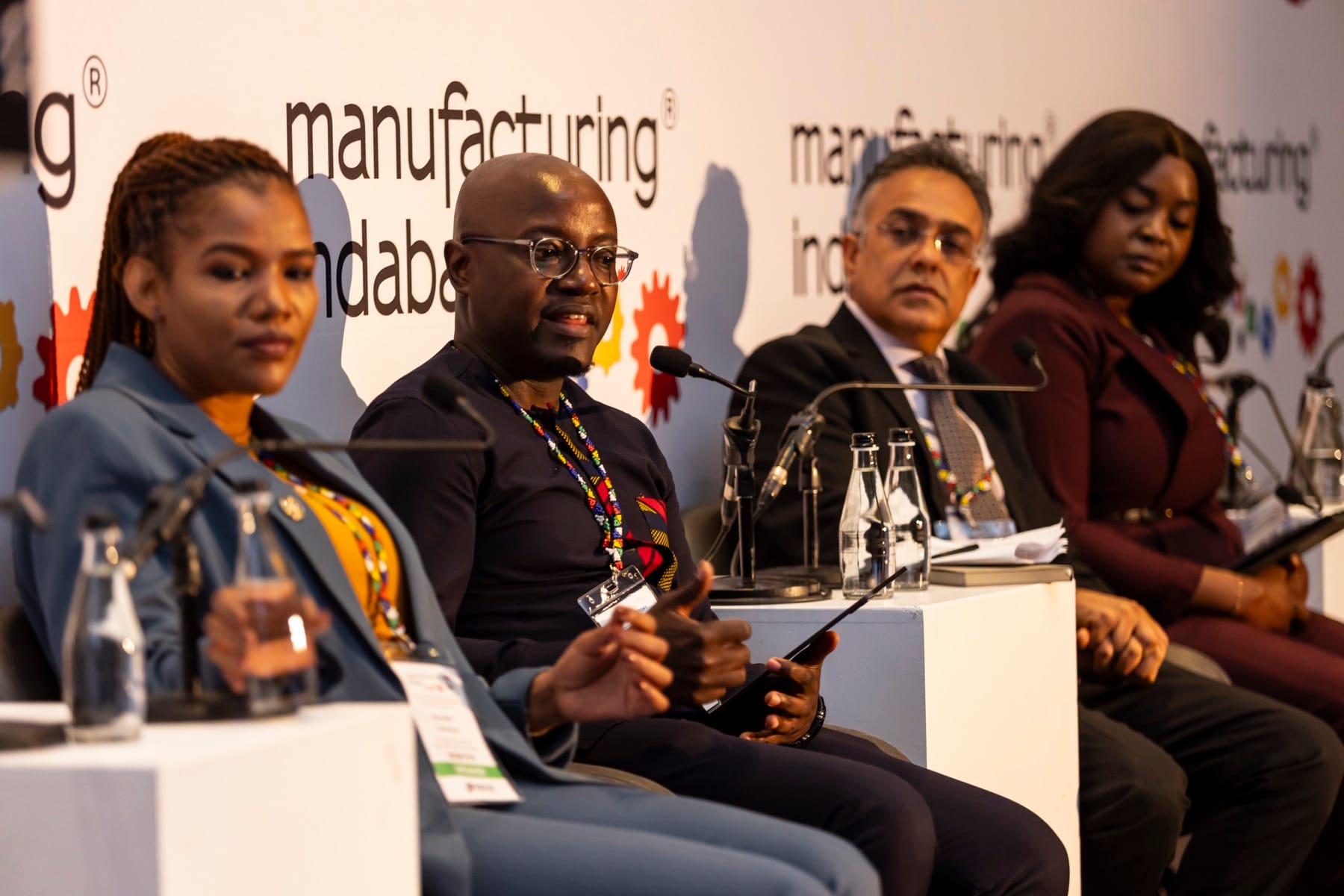Last week, I had the privilege of speaking on a panel about Market Access, Trade Facilitation, Export Promotion, and the African Continental Free Trade Area (AfCFTA) at the Manufacturing Indaba in Johannesburg, South Africa. The session was moderated by Duncan Bonnett from Africa House, and I shared insights alongside remarkable industry leaders including Mmantlha Sankoloba of the Botswana Exporters and Manufacturers Association, Ashu Sagar from the Zambia Association of Manufacturers, and Olori Boye-Ajayi of Borderless Trade and Investments.





Impressions from the breakaway panel discussion.
The AfCFTA is undoubtedly poised to have a transformative impact on continent's economic landscape, with the potential to increase intra-African trade by nearly 50% in the coming years. The framework holds the promise of a more cohesive and competitive African market—something we need now more than ever to secure a sustainable industrial future.
For countries like Zambia, which is uniquely positioned as a land-linked nation with access to eight neighboring markets and over 600 million people across the SADC and COMESA regions, the AfCFTA presents a once-in-a-generation opportunity. However, to fully benefit from this integration, we must tackle the persistent barriers that continue to limit our success.
Trade in Africa is still weighed down by non-tariff barriers and prohibitively high logistics costs—transport expenses alone can account for upwards of 40% of production costs for Zambian businesses. These challenges are real but are also an invitation to innovate. By embracing digital tools like the Automated System for Customs Data (ASYCUDA), which has significantly reduced customs processing times in Zambia, and exploring emerging technologies like blockchain and artificial intelligence, we can make cross-border trade more efficient and lower operational costs for businesses.
But market access alone won’t drive lasting growth. Building robust export capabilities and creating value-added products are critical steps in moving Africa up the global value chain. Zambia’s own focus on value-added exports in mining and agro-processing is a promising example of how African countries can leverage AfCFTA to integrate more deeply with the global economy.
Our shared objective should be to harness AfCFTA’s potential, reducing trade barriers and championing export promotion as a sustainable path for industrial growth. Achieving this vision requires both national dedication and regional collaboration, capital, competence, and confidence. With the right investments in infrastructure, digital trade facilitation, and coordinated policies, I am confident that we can unlock Africa’s manufacturing potential.
Infrastructure of Trust
A key takeaway from the discussion was a powerful insight from Olori on the need to build an “infrastructure of trust” among African nations to fuel the implementation of the AfCFTA. This trust will be foundational to a vibrant and interconnected trade network across Africa.
Following the panel discussion, I had the pleasure of speaking with Thami Ngubeni on Channel Africa's Africa in Business
and sharing more thoughts with Thuto Ngobeni in her Africa Rise & Shine report.